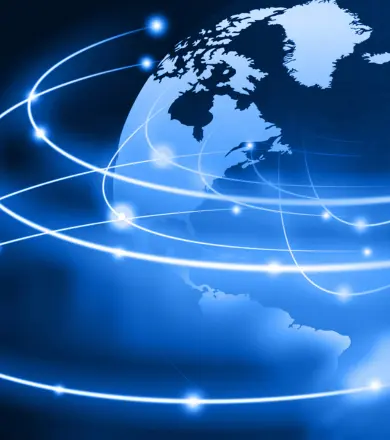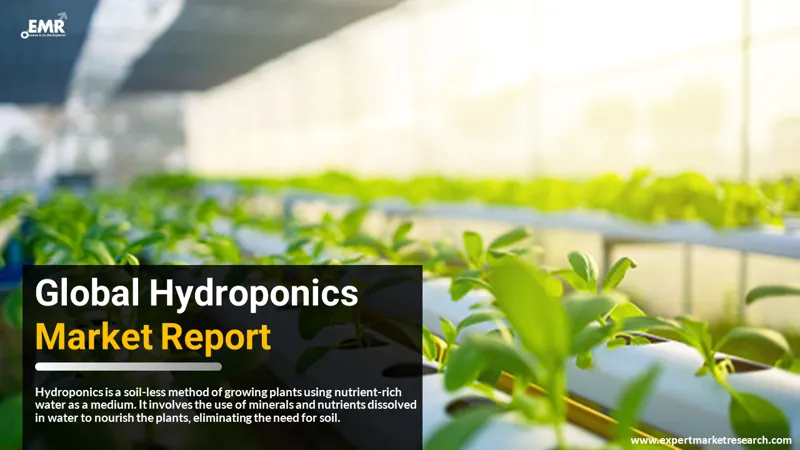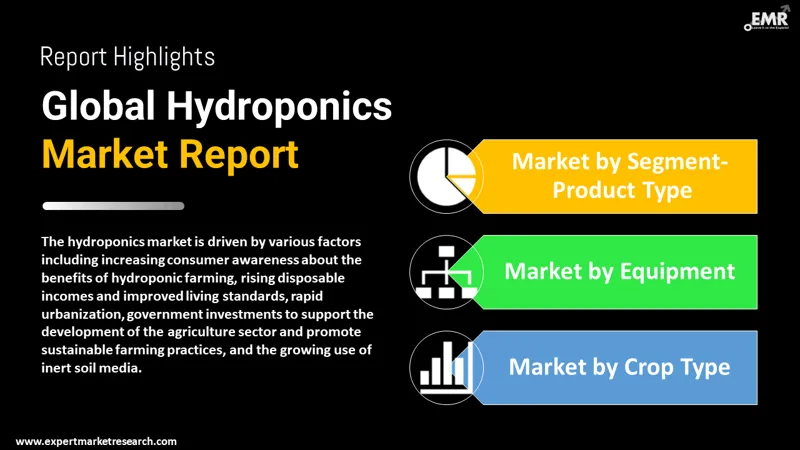
Consumer Insights
Uncover trends and behaviors shaping consumer choices today
Procurement Insights
Optimize your sourcing strategy with key market data
Industry Stats
Stay ahead with the latest trends and market analysis.
Trending Now



The global hydroponics market is expected to reach a value of more than USD 8489.15 Million in 2024. The industry is expected to grow at a CAGR of 20.10% during the forecast period of 2025-2034. Sustainable farming practices are a key driver of the global hydroponics market. As traditional agriculture faces challenges like limited arable land, water scarcity, and climate change, hydroponics offers a resource-efficient solution, thus aiding the market to attain a valuation of USD 53002.25 Million by 2034.
Base Year
Historical Year
Forecast Year
The USDA's Agricultural Innovation Agenda focuses on increasing food production by 40% by 2050, directly supporting the growth of the hydroponics market. Hydroponics is an ideal solution for increasing yields with no increase in land usage when the demand for food continues to increase globally. This would perfectly fit the USDA's objectives of increasing efficiency and sustainability in farming, considering that traditional farming is challenged by factors such as soil degradation and climate change. By promoting innovative methods like hydroponics, the U.S. government is paving the way for sustainable agricultural practices, encouraging further market growth, propelling the growth of the hydroponics market.
Various governments around the world are increasingly supporting hydroponics as an effective solution for efficient land use, water conservation, and sustainable farming methods. Several countries are investing in hydroponic research and development and are providing subsidies and incentives to farmers and startups. Such initiatives would minimize reliance on traditional farming, which is highly water-dependent, and overcome the challenges associated with climate change. Global push towards sustainable food production systems has directly influenced the adoption of hydroponic technologies. Both consumers and governments adopt sustainable agriculture, thereby increasing the market.
Hydroponic systems reduce water usage to as much as 90% less than traditional farming. This is crucial in light of the growing water scarcity in the world, particularly in areas dependent on irrigation. Hydroponics systems are made to recycle water efficiently and provide a practical solution for crop production with minimal environmental impact. These systems are currently gathering global popularity, more specifically within cities where, with high levels of urbanization, direct conventional farming is hard to accomplish. This water-saving benefit drives interest for hydroponics, encouraging further market demand throughout the globe.






Value in USD Million
2025-2034
Hydroponics Market Outlook
*this image is indicative*
The hydroponics market is mainly driven by the growing need for sustainable, resource-efficient farming solutions to meet the ever-increasing global food demands. Urbanization, water scarcity, and the depletion of arable land are pushing consumers and governments to adopt alternative farming methods. Hydroponics offers a solution in using less water and land, allowing for year-round, local food production.
With consumers being increasingly conscious about their environment, they want fresh produce that is locally grown. The market for hydroponic farming increases because manufacturers innovate and provide more advanced hydroponic systems, not only for commercial purposes but also for home use, and at lower prices and with a scalable structure. The favorable environment in the form of government policies and incentives encouraging eco-friendly farming methods accelerates the growth of the market.

Read more about this report - REQUEST FREE SAMPLE COPY IN PDF
One of the primary drivers of the hydroponics market is the growing need for environment-friendly agriculture due to water constraint. Companies like Freight Farms, providing mobile hydroponic systems, are now setting new standards for a practical and locally produced food in cities. Freight Farms provide an environment-friendly and scalable option that appeals to customers and commercial farmers alike while farming in cargo containers and saving water by not requiring arable land.
Urban farming initiatives are a niche driver of the hydroponics market, with cities increasingly adopting hydroponic and vertical farming systems to address food security concerns in densely populated areas. These systems, such as rooftop and warehouse farming, utilize limited space for efficient, year-round crop production. Companies like Urban Crop Solutions and Aerofarms are pioneering such technologies, providing local, fresh produce while minimizing transportation costs and environmental impacts. As urban areas continue to grow, the demand for hydroponics in cities is expected to rise, driven by the need for sustainable and local food production.
Urban farming, sustainability, technological innovations, and government support are driving the growing demand for hydroponic systems globally.
The rise in urban farming and vertical agriculture is boosting the hydroponics market. Hydroponics is seen as a viable alternative to grow fresh produce in congested cities, especially on rooftops or warehouse space in warehouses. This maximizes the available space in vertical farming and cultivates crops in stacked layers. Companies such as Aerofarms and Urban Crop Solutions are at the forefront of these technologies, filling the growing demand for local, sustainable food production in cities. This trend supports food security while reducing transportation costs and environmental impact, creating demand for hydroponic systems in cities around the world, thus augmenting the hydroponics demand growth.
Sustainability is a trend in agriculture, and hydroponics provides many advantages over traditional farming. Hydroponic systems use up to 90% less water, making them highly attractive in areas with water scarcity or those aiming to reduce environmental impact. This aligns with global sustainability goals, as it reduces water waste and minimizes the use of pesticides and fertilizers. As more customers and governments look for eco-friendly methods of farming, so is the demand for hydroponic technologies. This in turn grows the market and promotes increased innovation in water-efficient systems of growing.
Technological change in hydroponics continues to drive the market with improved efficiency, yield, and ease of use. Automated systems, sensors, and AI are now used within hydroponic set-ups to monitor environmental factors, including temperature, humidity, and nutrient levels, in real time. Companies like Greensense Farms use these technologies for increased production with reduced human intervention. The development of smart hydroponic systems will continue to attract commercial growers and small-scale urban farmers, thus further fueling market growth as these technologies become more affordable and scalable, thus boosting the hydroponics market revenue.
Government policies and financial incentives encouraging sustainable farming practices are rapidly boosting the hydroponics market. Increasingly, governments all over the world realize that hydroponics has enormous potential in achieving food security and reducing environmental impacts. Programs in terms of subsidies, grants, and tax incentives to promote hydroponic farms make an investment in such a system. For instance, the United States Department of Agriculture promotes hydroponics and controlled-environment agriculture systems toward meeting food production goals. These efforts help reduce startup costs and make hydroponic systems more accessible, hence accelerating their adoption across the globe.
The growing use of automated systems is a noteworthy trend in the hydroponics industry. These technologies, which include climate control and AI-driven nutrient delivery, improve hydroponic farming's accuracy and efficiency. Higher yields and resource conservation result from automation's ability to lower labour costs, limit human error, and guarantee ideal growing conditions, thereby shaping new trends in the hydroponics market. Automated systems are becoming indispensable as the need for efficient and sustainable farming methods increases, particularly in large-scale commercial hydroponic operations.
Aerofarms, a company that leads in vertical farming, uses advanced automation systems to regulate environmental variables such as temperature, humidity, and light. Their AI-driven nutrient delivery system ensures that each plant receives the optimal amount of nutrients, reducing waste and improving crop yield. This automation allows Aerofarms to scale efficiently, lowering labor costs and maximizing resource conservation, which makes it a prime example of automation shaping the hydroponics industry. Their system can yield up to 390 times more food per square foot compared to traditional farming.
Verdant Robotics integrates AI and automation in their hydroponic farming systems for increasing crop yields while cutting labor. Their robotic platform autonomously monitors plant health and applies nutrients with precision, ensuring efficient resource use. Minimizing human intervention and optimizing growing conditions, their technology contributes to more sustainable farming practices. The system by Verdant Robotics not only offers greater accuracy in farming but also reduces costs in operations, thus supporting large-scale commercial hydroponics to provide growing food demands.
A significant hydroponics market opportunity is the growing need for solutions in urban agriculture. Hydroponic farming to grow fresh vegetables locally is the sustainable solution to the growing urbanisation and scarcity of arable land. Companies like Vertical Harvest are taking advantage of such an opportunity by building vertical farms in cities to offer fresh vegetables all-year-round by reducing their environmental effect and transportation cost. Urban hydroponics presents a high-growth business opportunity for stakeholders and entrepreneurs due to the desire of communities worldwide to enhance food security and sustainability.
Automated nutrient delivery systems are one such technology that is becoming popular in the hydroponics industry, bolstering the hydroponics market dynamics and trends. In these systems, sensors and artificial intelligence are used to monitor and control the levels of nutrients in real time, thereby maximising plant growth. Business roles in hydroponic systems are now being integrated in automation towards more productivity and even work reduction in human components. This increased agricultural productivity and minimises waste through precise management of nutrients. It is envisioned that this will spur further business growth in hydroponics because precision farming is increasingly utilised.
High initial setup costs are one of the market's challenges for hydroponics, which can deter small-scale producers, posing some hydroponics market challenges. Adoption is further limited by lack of technical know-how and skill in running complex systems. The reliance on power for climatic controls and lighting increases the cost of operation. It is challenging because hydroponic systems for commercial-scale large production are versatile, and adequate space in metropolitan areas may be very limited. It can also be thwarted by regulatory barriers, depending on the specific area.

Read more about this report - REQUEST FREE SAMPLE COPY IN PDF
“Hydroponics Market Report and Forecast 2025-2034” offers a detailed analysis of the market based on the following segments:
On the basis of product type, the market can be divided into the following:
On the basis of equipment, the market can be divided into the following:
On the basis of crop type, the market can be divided into the following:
Based on region, the market can be segregated into:
By Product Type Analysis
Particularly for novice and small-scale farmers, the aggregate hydroponic system is becoming more and more popular because of its affordability and ease of use. It provides improved control over plant roots and ease of maintenance. As per hydroponic market analysis, the liquid hydroponic system, which is frequently employed in commercial and large-scale farming, is favoured due to its great efficiency and quicker plant growth. As the need for water-efficient, sustainable agricultural practices grows worldwide, particularly in urban and resource-constrained areas, both approaches are becoming more and more well-liked.
Market Analysis by Equipment
In hydroponics, HVAC systems are essential for preserving ideal humidity and temperature conditions, which promote robust plant development. LED growing lights are commonly employed to supply the light spectrum required for photosynthesis, allowing for year-round growth, particularly in low-light conditions. A key component of water conservation, irrigation systems effectively control water use by supplying nutrients straight to plant roots. As per hydroponics industry analysis, to increase system efficiency, control systems automate and monitor environmental factors including temperature, humidity, and nutrient levels. Fans, CO2 injectors, and pH metres are other pieces of equipment that aid in system optimization.
Crop Type Insights
The market for hydroponics is dominated by vegetables owing to the strong demand for wholesome, fresh products like tomatoes, lettuce, and spinach. Fruits, especially cucumbers and strawberries, are becoming more popular as hydroponic systems allow for effective, year-round production in regulated settings. As the need for reliable, superior flowers increases, hydroponic flower cultivation is being used more and more for decorative purposes. Because of their rapid growth cycles and high market value, other crops including herbs, microgreens, and medicinal plants are becoming more and more popular in urban farming, which is increasing the use of hydroponics worldwide.
North America Hydroponics Market Opportunities
The North America hydroponics market is likely to increase as demand for locally grown and sustainable produce has been increasing in the region. Adoption of hydroponic systems has gained strength both in the United States and Canada, and vertical farming is taking a focus in the states of California and Ontario. As indicated by the United States Department of Agriculture, hydroponics has been recognized as the key approach toward improving food security. There is significant opportunity for hydroponic innovation across the region, with government incentives and support for sustainable agriculture as well as increasing consumer interest in organic foods at a rapidly growing rate.
Europe Hydroponics Market Dynamics
The need for sustainable, space-efficient farming practices is increasingly driving the hydroponics industry in Europe. Regional governments encourage hydroponics among others as sustainable farming practices to attain sustainable, healthy, and environmentally friendly food systems by 2030. An example of such is the European Union's Farm to Fork Strategy. The United Kingdom and the Netherlands are at the forefront of using hydroponics since countries develop their agritech innovation expenditures. The focus of the European Commission on minimising environmental impacts and increasing local food production promotes further market expansion.
Asia Pacific Hydroponics Market Trends
The growth rate in the Asia Pacific hydroponics market is exponential, due to rapid urbanisation, unavailability of arable land, and increasing demand for fresher produce. The Asian nations are embracing hydroponic farming to ensure food security despite environmental degradation. Technologies for automated systems, energy-efficient lighting, and nutrient management propel this market forward. Growing consumer preference for organic and local produce along with incentives from the government for agritech solutions helps accelerate the adoption of hydroponics in the region further.
Latin America Hydroponics Market Insights
The Latin America market for hydroponics is growing due to a growing demand for more sustainable farming solutions, mainly in countries like Mexico, Brazil, and Argentina. Due to the limited arable land and water, hydroponics has proven to be an efficient alternative for food production. Companies like Agroponics Brazil are leading companies in this area by offering hydroponic systems to the local farmers, with a focus mainly on fresh vegetables and herbs. Government initiatives and the rising demand for acquiring organic products do provide support to the rapid expansion of the market in the region.
Middle East and Africa Hydroponics Market Drivers
The driving forces for the hydroponics market in the Middle East and Africa region mainly include water scarcity, urbanisation, and sustainable agriculture. Hydroponics in the region can be an alternative for water-use-intensive traditional farming. According to the UAE Food Security Strategy, local food production should be increased by 30% by 2030 in the country. Moreover, rapid urbanisation and a growing demand for fresh, locally produced produce serve as fuels for hydroponic systems' adoption. Increasing government backing for agritech innovation further fuels market growth.
The hydroponics market players are concentrating on developing sustainable agricultural practices to address resource efficiency and global food security. Their goals are to increase crop yields, use less water, and get rid of reliance on soil. To improve plant development in regulated surroundings, hydroponics companies are creating smart technologies like LED lighting, automatic irrigation, and integrated systems. Furthermore, increasing accessibility for commercial and small-scale farmers globally is a top priority.
Argus Control Systems Limited was established in 1988 in Canada, offering outstanding automation solutions to enhance crop yields in hydroponic farming through climate, irrigation, and nutrient supply.
Heliospectra AB was founded in 2008 in Gothenburg, Sweden. The company specialises in the development of LED-based lighting systems for hydroponics. This allows them to optimise plant growth by targeted light spectra on the crop, thus increasing yields and saving energy.
RISING FARMS is a 2016 US-based company that focuses on creating vertically scalable farming systems that make the most with little water and space, ideal for urban environments.
Freight Farms, Inc., founded in 2014 Boston, the company deals with mobile hydroponic farming solutions in shipping containers, providing a year-round, resource-conserving approach to urban farming.
*Please note that this is only a partial list; the complete list of key players is available in the full report. Additionally, the list of key players can be customized to better suit your needs.*
Other key players in the global Hydroponics market are Minda Industries Limited, among others.
Global hydroponics market startups are concentrating on improving farm efficiency, reducing resource usage, and enhancing food production. They integrate AI, automation, and advanced sensor technology to optimize growing conditions and reduce labor costs. They also focus on making hydroponic systems more affordable and scalable, targeting urban farmers and commercial agriculture. Innovations are pushing the boundaries of sustainability and profitability while responding to growing demand for local, fresh, and eco-friendly produce.
Plenty: It is a vertical farming startup company that uses AI and machine learning to optimize growing conditions in controlled environments, boosting crop yield and resource efficiency in urban areas.
Infarm: Infarm combines hydroponics with modular farming systems, making it possible for farms to grow fresh produce in the heart of cities. Their data-driven approach cuts down water consumption and transportation costs to make farming more sustainable.
United States Fire Sprinklers Market
Tribulus Terrestris Extract Market
Saudi Arabia Structural Steel Market
Europe Freeze-Dried Fruit Products Market
*While we strive to always give you current and accurate information, the numbers depicted on the website are indicative and may differ from the actual numbers in the main report. At Expert Market Research, we aim to bring you the latest insights and trends in the market. Using our analyses and forecasts, stakeholders can understand the market dynamics, navigate challenges, and capitalize on opportunities to make data-driven strategic decisions.*
Get in touch with us for a customized solution tailored to your unique requirements and save upto 35%!
The market is estimated to witness healthy growth in the forecast period of 2025-2034 to reach a value of around USD 53002.25 Million by 2034.
The hydroponics market is assessed to grow at a CAGR of 20.10% between 2025 and 2034.
The major drivers of the market include the growing awareness among consumers regarding the essential benefits of hydroponic farming, rising disposable incomes, improved living standards, rapid urbanisation, increased government investments to support the development of the agriculture sector and promote sustainable farming practices, and increasing use of inert soil media.
The steadily increasing population and increased demand for food and agricultural produce are the key industry trends propelling the market growth.
The major regions in the industry are North America, Latin America, the Middle East and Africa, Europe, and the Asia Pacific.
The significant product types include aggregate hydroponic system and liquid hydroponic system.
The different equipment considered in the market report include heating, ventilation and air conditioning (HVAC), LED growing lights, irrigation systems, and control systems, among others.
The major crop types can be segmented into vegetables, fruits, and flowers, among others.
The major players in the market are Argus Control Systems Limited, Heliospectra AB, RISING FARMS, Freight Farms, Inc., Lettuce Grow LLC, Triton Foodworks Pvt. Ltd., AeroFarms, LLC, among others.
In 2024, the market reached an approximate value of USD 8489.15 Million.
Explore our key highlights of the report and gain a concise overview of key findings, trends, and actionable insights that will empower your strategic decisions.
| REPORT FEATURES | DETAILS |
| Base Year | 2024 |
| Historical Period | 2018-2024 |
| Forecast Period | 2025-2034 |
| Scope of the Report |
Historical and Forecast Trends, Industry Drivers and Constraints, Historical and Forecast Market Analysis by Segment:
|
| Breakup by Product Type |
|
| Breakup by Equipment |
|
| Breakup by Crop Type |
|
| Breakup by Region |
|
| Market Dynamics |
|
| Competitive Landscape |
|
| Companies Covered |
|
| Report Price and Purchase Option | Explore our purchase options that are best suited to your resources and industry needs. |
| Delivery Format | Delivered as an attached PDF and Excel through email, with an option of receiving an editable PPT, according to the purchase option. |
Single User License
One User
USD 3,999
USD 3,599
tax inclusive*
Datasheet
One User
USD 2,499
USD 2,249
tax inclusive*
Five User License
Five User
USD 4,999
USD 4,249
tax inclusive*
Corporate License
Unlimited Users
USD 5,999
USD 5,099
tax inclusive*
*Please note that the prices mentioned below are starting prices for each bundle type. Kindly contact our team for further details.*
Flash Bundle
Small Business Bundle
Growth Bundle
Enterprise Bundle
*Please note that the prices mentioned below are starting prices for each bundle type. Kindly contact our team for further details.*
Flash Bundle
Number of Reports: 3
20%
tax inclusive*
Small Business Bundle
Number of Reports: 5
25%
tax inclusive*
Growth Bundle
Number of Reports: 8
30%
tax inclusive*
Enterprise Bundle
Number of Reports: 10
35%
tax inclusive*
How To Order
Our step-by-step guide will help you select, purchase, and access your reports swiftly, ensuring you get the information that drives your decisions, right when you need it.

Select License Type
Choose the right license for your needs and access rights.

Click on ‘Buy Now’
Add the report to your cart with one click and proceed to register.

Select Mode of Payment
Choose a payment option for a secure checkout. You will be redirected accordingly.
Track prices with detailed trend reports.

Analyse trade data for supply chain insights.

Leverage cost reports for smart savings

Enhance supply chain with partnerships.

Gain insights to stay ahead and seize opportunities.

Get insights & trends for a competitive edge.

Track prices with detailed trend reports.

Analyse trade data for supply chain insights.

Leverage cost reports for smart savings

Enhance supply chain with partnerships.

Gain insights to stay ahead and seize opportunities.

Get insights & trends for a competitive edge.

Track prices with detailed trend reports.

Analyse trade data for supply chain insights.

Connect For More Information
Our expert team of analysts will offer full support and resolve any queries regarding the report, before and after the purchase.
Our expert team of analysts will offer full support and resolve any queries regarding the report, before and after the purchase.
We employ meticulous research methods, blending advanced analytics and expert insights to deliver accurate, actionable industry intelligence, staying ahead of competitors.
Our skilled analysts offer unparalleled competitive advantage with detailed insights on current and emerging markets, ensuring your strategic edge.
We offer an in-depth yet simplified presentation of industry insights and analysis to meet your specific requirements effectively.



Australia
63 Fiona Drive, Tamworth, NSW
+61-448-061-727
India
C130 Sector 2 Noida, Uttar Pradesh 201301
+91-723-689-1189
Philippines
40th Floor, PBCom Tower, 6795 Ayala Avenue Cor V.A Rufino St. Makati City,1226.
+63-287-899-028, +63-967-048-3306
United Kingdom
6 Gardner Place, Becketts Close, Feltham TW14 0BX, Greater London
+44-753-713-2163
United States
30 North Gould Street, Sheridan, WY 82801
+1-415-325-5166
Vietnam
193/26/4 St.no.6, Ward Binh Hung Hoa, Binh Tan District, Ho Chi Minh City
+84-865-399-124
United States (Head Office)
30 North Gould Street, Sheridan, WY 82801
+1-415-325-5166
Australia
63 Fiona Drive, Tamworth, NSW
+61-448-061-727
India
C130 Sector 2 Noida, Uttar Pradesh 201301
+91-723-689-1189
Philippines
40th Floor, PBCom Tower, 6795 Ayala Avenue Cor V.A Rufino St. Makati City, 1226.
+63-287-899-028, +63-967-048-3306
United Kingdom
6 Gardner Place, Becketts Close, Feltham TW14 0BX, Greater London
+44-753-713-2163
Vietnam
193/26/4 St.no.6, Ward Binh Hung Hoa, Binh Tan District, Ho Chi Minh City
+84-865-399-124
Share